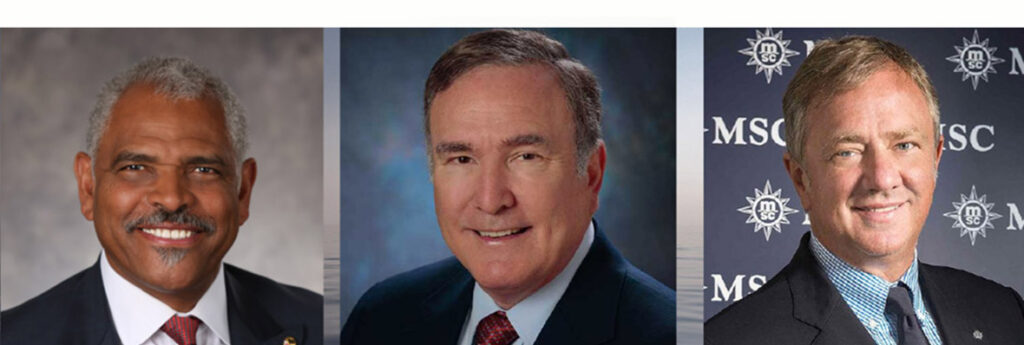It’s inevitable that the cruise industry will experience more cases of COVID-19 among passengers, crew or both, says the head of the world’s biggest cruise company. But Carnival Corp. CEO Arnold Donald is quick to add that the sector has become a global leader in health and safety and will be able to handle the situation when it arrives.
The Carnival boss’s comments come as CLIA put a 100 percent testing protocol into effect on Tuesday (part of a mandatory list of safety measures adopted by CLIA members), necessitating a successful COVID test for any passenger or crew member who boards a ship.
Or as Royal Caribbean Cruises chairman and CEO Richard Fain puts it: “No person will board a ship without a test.”
Nevertheless, Donald admitted to attendees at the Seatrade Cruise Virtual 2020 conference this week that, despite the tests and, “with all the protocols we have, there’s still likely, eventually, to be a case on board… There’s no perfect system to prevent it.”
However, the difference, he said, is that the cruise industry is prepared for the eventuality and has spent “an enormous amount of time” on what happens if there is a case on board.
“First there’s all the measures to mitigate that,” he says, “then all the measures to mitigate spread if there is a case,” as well as the “psychological comfort” of having medical centres on board, along with screening, temperature checks and other protocols.
“All those things are to mitigate spread, to isolate cases, to take care of them and get them off to better care, and to minimize spread on the rest of the ship,” he said.
And Donald added that the approach has been working in Europe so far, where Carnival’s Costa brand has resumed sailing.
Royal Caribbean’s Fain agrees that testing is only part of the cruise industry’s response to the pandemic problem, and that a “layered approach” is required to prevent infections and instill confidence. And that includes on-board monitoring protocols for reducing transmission should the virus be detected.
“A lot of people, he notes, “aren’t so concerned about getting the disease, they’re concerned about somebody else getting the disease and their holiday getting ruined because of it.”
Fain says Royal Caribbean recently had a chance to test its protocols when a group of passengers tested positive on board, though it ultimately proved to be a false alarm. But in the interim, “we dealt with it quickly, we dealt with it properly, and it didn’t affect the other guests on board, no government resources were required,” he said.
He’s adds that contact tracing is an important element of the protocols that can be done “so much better” on any cruise ship than can be done on any community on land.
“There is no such thing as zero risk, but we have reduced the risk,” he says. “We can isolate it, insulate it and take care of it.”
Pierfrancesco Vago, executive chairman of MSC Cruises, lauds CLIA’s 100-per cent testing pledge, noting the uniqueness of the endeavour by any industry.
“It’s amazing,” he says, particularly in light of his belief that any potential vaccines for the disease will not be the “magic wand” that many people expect them to be.
“Testing,” he says, will be the solution to defeating the disease. “Before you get into an airport, before you get into a plane, before you enter into a hotel… We need to isolate (COVID), and that’s what the cruise industry is offering – the professionality and approach that everybody must be listening to.”
He adds that the industry has embraced the latest technology to manage the situation, noting that PCR tests are already “anachronistic.”
Meanwhile, Carnival CEO Donald doesn’t begrudge the need for the testing protocols by the cruise industry as a means of ensuring the safety of passengers and staff and helping rebuild consumer confidence ahead of a return to full cruising, but he does want to emphasize the monumental nature of the task.
After all, a cruise ship is like a “city at sea” with its own restaurants and bars and activities and destinations, etc., he says, adding, “And what city is testing all of their citizens before they let them move about and engage in all those activities?
“So, just with the simple concept of 100 percent testing we are truly standing out,” he says.
“Dramatically!”

